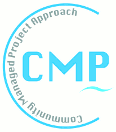WASH for all: reaching the most vulnerable group of people
Berhane Daba is one of the founding members of EWDNA (Ethiopian Women with Disabilities National Association), a national Disabled People’s Organisation (DPO) that works for the empowerment of women with disabilities in Ethiopia. She has a physical disability herself due to polio contracted when she was a small child. Driven by her own experiences, Berhane is passionately working for the improvement of the situation of women with disabilities in Ethiopia. After graduating from University, she set out to formally establish EWDNA together with seven other friends. Revealingly they faced strong opposition in this process and were only able to get the legal registration certificate after an eight-year struggle in 2002. Others could not understand why a new association was needed for only women with disabilities, as the specific problems they face were not well understood. Today EWDNA has grown into a vibrant association with over 1000 members in Addis only and with several regional branches in the country.
Berhane explains that the situation of women with disabilities is even more difficult than that of men with disabilities, as they face a double disadvantage and burden of both of having a disability and being a woman. Accessing water and sanitation facilities in both urban and rural areas, at home and outside the home remain a key issue for women with disabilities. For example Berhane recalls that when she was going to school as a young girl, the toilets in her school were not accessible for her and therefore she would not be able to drink or eat anything the whole day to avoid using them. This has caused her lasting health problems, a story which is not unique among persons with disabilities. Unfortunately decades later the situation is still the same in many schools, other institutions and public places. In addition, most schools do not have any accessible facilities for menstrual hygiene management, again putting young girls with disabilities in a further disadvantaged situation.
Berhane clarifies that persons with disabilities in both rural and urban areas often need to rely on the help of others to access water and sanitation, and for example need to pay others to fetch and carry water for them. This puts them in a further disadvantaged position as many persons with disabilities are also among the poorest members of the community. Sometimes discrimination continues within the household as the family members do not support their members with disabilities. To illustrate this Berhane tells the story of one of the members of EWDNA Addis branch who has a physical disability. She was born in a rural village and was tasked to keep the house clean and cook for the whole family. She was the only one of the four children that did not attend school. The biggest challenge she faced every day was accessing the water needed for the cooking and cleaning of the household. Although a common problem, the family did not support her at all in the task, but instead she had to pay her brother with her own portion of food to carry the water for her.
When asked what the WASH sector should do to improve the situation of persons with disabilities, Berhane does not hesitate with her answer: the key issue is the inclusion of the persons with disabilities themselves, in all different stages and levels. If persons with disabilities are not heard and represented, their interests are often forgotten: inclusion starts at the design and planning phase. It should be remembered that persons with disabilities are also people; women with disabilities are also women, and children with disabilities are also children. Sometimes this is forgotten and those with disabilities are seen as a separate group and outside of society. In the same way as everyone else, persons with disabilities want to be included in decision-making that concerns them and want to do things for themselves and not through others.
Berhane also highlights another problem that is the implementation of the Convention for the Rights of Persons with Disabilities (CRPD), which Ethiopia ratified in 2010, is poor. This Convention and its guiding principles of autonomy, non-discrimination, participation and inclusion in society, equality, and accessibility also apply to the WASH sector. The implementation and its regulation should be strengthened in order to improve the situation of the most vulnerable groups and ensure access for all, says Berhane.

